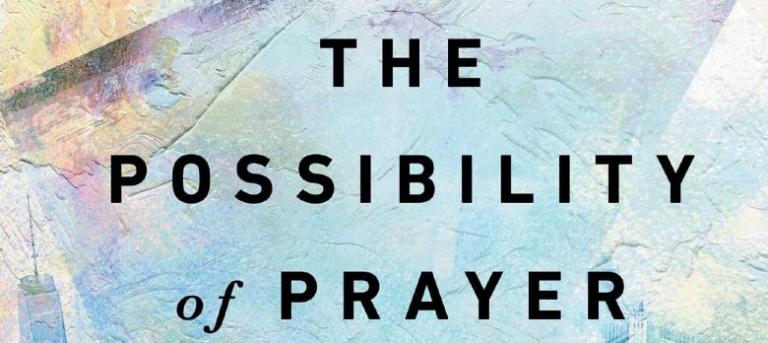
This Summer Beth and I will celebrate our 13th wedding anniversary. Our marriage has been a source of great joy to me and has been the single greatest ingredient in my growth as a man and a Christian. In marriage I have seen my character grow and seen the ugliest aspects of my character come to the fore so I can repent of it.
I find myself consistently looking to the wisdom of couples who have been married longer so I can continue to grow as a husband. Since it’s release a few years ago, have turned to Tim and Kathy Keller’s The Meaning of Marriage multiple times. Their work never ceases to challenge me, and I wanted to share my favorite quotes below.
“When over the years someone has seen you at your worst, and knows you with all your strengths and flaws, yet commits him- or herself to you wholly, it is a consummate experience. To be loved but not known is comforting but superficial. To be known and not loved is our greatest fear. But to be fully known and truly loved is, well, a lot like being loved by God. It is what we need more than anything. It liberates us from pretense, humbles us out of our self-righteousness, and fortifies us for any difficulty life can throw at us.”
“Wedding vows are not a declaration of present love but a mutually binding promise of future love.”
“A marriage relationship unavoidably entails self-denial, even in the most mundane day-to-day living. It is impossible to have a smooth-running relationship with even one person, let alone two, always feeling that his or her desires should have preeminence because of all he or she has been through in life.”
“If we look to our spouses to fill up our tanks in a way that only God can do, we are demanding an impossibility.”
“Marriage has the power to set the course of your life as a whole. If your marriage is strong, even if all the circumstances in your life around you are filled with trouble and weakness, it won’t matter. You will be able to move out into the world in strength.”
“It is the illusion that if we find our one true soul mate, everything wrong with us will be healed; but that makes the lover into God, and no human being can live up to that.”
“Marriage is a major vehicle for the gospel’s remaking of your heart from the inside out and your life from the ground up.”
“The gospel is this: We are more sinful and flawed in ourselves than we ever dared believe, yet at the very same time we are more loved and accepted in Jesus Christ than we ever dared hope.”
“Only if you have learned to serve others by the power of the Holy Spirit will you have the power to face the challenges of marriage.”
“Whether we are husband or wife, we are not to live for ourselves but for the other. And that is the hardest yet single most important function of being a husband or a wife in marriage.”
“But Smedes argues eloquently that promising is the means to freedom. In promising, you limit options now, in order to have wonderful, fuller options later. You curb your freedom now, so that you can be free to be there in the future for people who trust you.”
“In any relationship, there will be frightening spells in which your feelings of love dry up. And when that happens you must remember that the essence of marriage is that it is a covenant, a commitment, a promise of future love. So what do you do? You do the acts of love, despite your lack of feeling. You may not feel tender, sympathetic, and eager to please, but in your actions you must BE tender, understanding, forgiving and helpful. And, if you do that, as time goes on you will not only get through the dry spells, but they will become less frequent and deep, and you will become more constant in your feelings. This is what can happen if you decide to love.”
“Love without truth is sentimentality; it supports and affirms us but keeps us in denial about our flaws. Truth without love is harshness; it gives us information but in such a way that we cannot really hear it. God’s saving love in Christ, however, is marked by both radical truthfulness about who we are and yet also radical, unconditional commitment to us. The merciful commitment strengthens us to see the truth about ourselves and repent. The conviction and repentance moves us to cling to and rest in God’s mercy and grace.”
“Our culture says that feelings of love are the basis for actions of love. And of course that can be true. But it is truer to say that actions of love can lead consistently to feelings of love.”
“The Christian teaching does not offer a choice between fulfillment and sacrifice but rather mutual fulfillment through mutual sacrifice. Jesus gave himself up; he died to himself to save us and make us his. Now we give ourselves up, we die to ourselves, first when we repent and believe the gospel, and later as we submit to his will day by day. Subordinating ourselves to him, however, is radically safe, because he has already shown that he was willing to go to hell and back for us. This banishes fears that loving surrender means loss of oneself.”
“The reason that marriage is so painful and yet wonderful is because it is a reflection of the gospel, which is painful and wonderful at once. The gospel is this: We are more sinful and flawed in ourselves than we ever dared believe, yet at the very same time we are more loved and accepted in Jesus Christ than we ever dared hope. This is the only kind of relationship that will really transform us. Love without truth is sentimentality; it supports and affirms us but keeps us in denial about our flaws. Truth without love is harshness; it gives us information but in such a way that we cannot really hear it. God’s saving love in Christ, however, is marked by both radical truthfulness about who we are and yet also radical, unconditional commitment to us. The merciful commitment strengthens us to see the truth about ourselves and repent. The conviction and repentance moves us to cling to and rest in God’s mercy and grace.”
“The gospel can fill our hearts with God’s love so that you can handle it when your spouse fails to love you as he or she should. That frees us to see our spouse’s sins and flaws to the bottom—and speak of them—and yet still love and accept our spouse fully. And when, by the power of the gospel, our spouse experiences that same kind of truthful yet committed love, it enables our spouses to show us that same kind of transforming love when the time comes for it.”
“Over the years you will go through seasons in which you have to learn to love a person who you didn’t marry, who is something of a stranger. You will have to make changes that you don’t want to make, and so will your spouse. The journey may eventually take you into a strong, tender, joyful marriage. But it is not because you married the perfectly compatible person. That person doesn’t exist.”
“The deep happiness that marriage can bring, then, lies on the far side of sacrificial service in the power of the Spirit. That is, you only discover your own happiness after each of you has put the happiness of your spouse ahead of your own, in a sustained way, in response to what Jesus has done for you. Some will ask, “If I put the happiness of my spouse ahead of my own needs—then what do I get out of it?” The answer is—happiness. That is what you get, but a happiness through serving others instead of using them, a happiness that won’t be bad for you. It is the joy that comes from giving joy, from loving another person in a costly way.”















